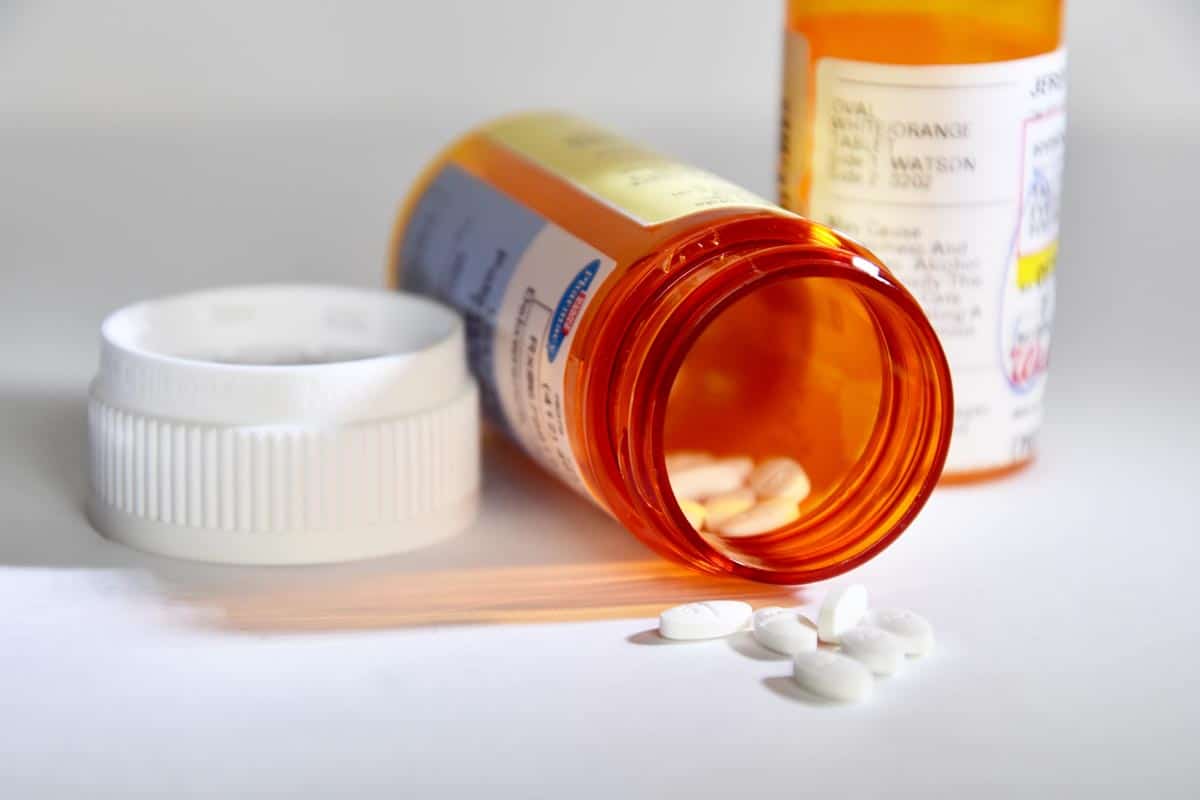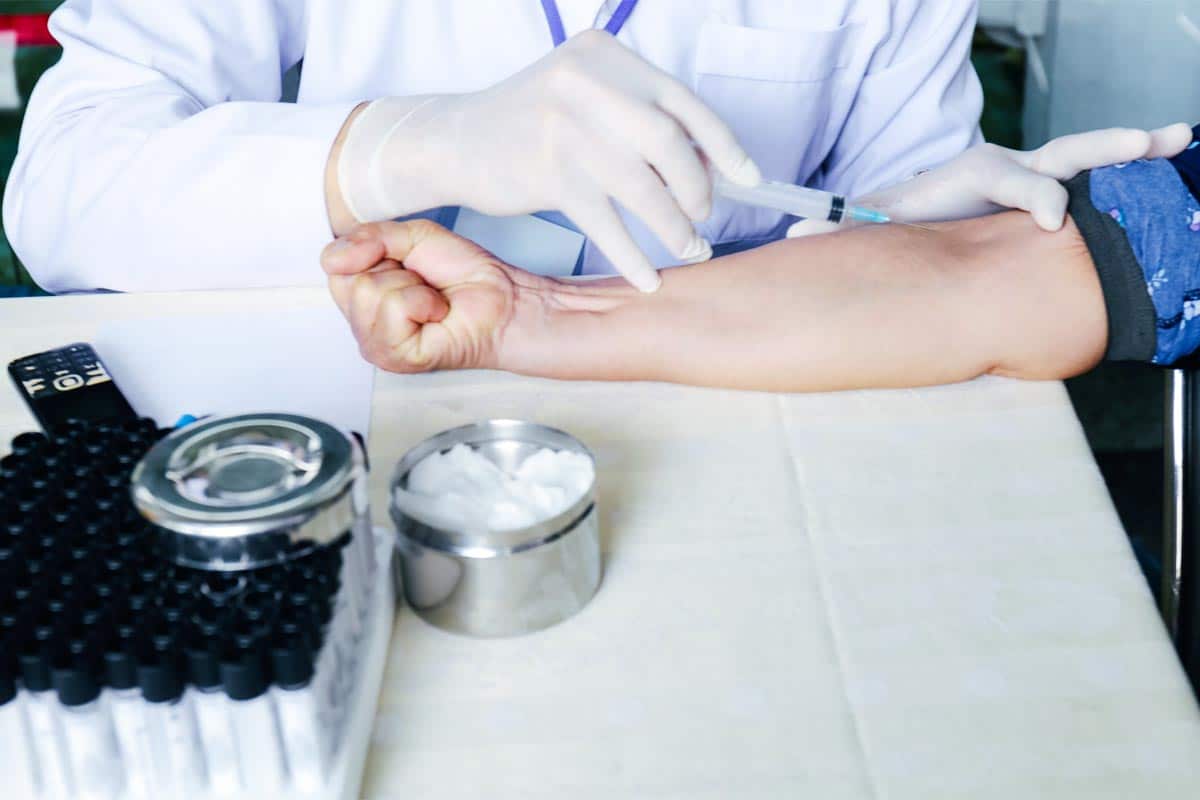 Trazodone is a popular antidepressant, often prescribed as Desyrel, Oleptro, and Trazodone D. As the 21st most-prescribed drug in the United States, it’s also extremely common, with over 5 million people taking out prescriptions. The drug is used as an antidepressant to treat depression and anxiety. However, it’s also a sedative, used off-label for alcohol dependance, pain, OCD, and schizophrenia. And, it’s occasionally used as a recreational drug, primarily by people with an existing trazodone dependence.
Trazodone is a popular antidepressant, often prescribed as Desyrel, Oleptro, and Trazodone D. As the 21st most-prescribed drug in the United States, it’s also extremely common, with over 5 million people taking out prescriptions. The drug is used as an antidepressant to treat depression and anxiety. However, it’s also a sedative, used off-label for alcohol dependance, pain, OCD, and schizophrenia. And, it’s occasionally used as a recreational drug, primarily by people with an existing trazodone dependence.
In addition, many people who take the drug test as positive for amphetamine usage, which means you may be very interested to know how long the antidepressant stays in your system.
Trazodone is a serotonin agonist and reuptake inhibitor (SARI) used as an antidepressant. The drug affects serotonin (5-hydroxtryptamine) by preventing your brain from absorbing the chemical as quickly – meaning that you have more of it in the brain. This can help to reduce symptoms of anxiety and depression in people with low levels of serotonin in the brain. It can also cause a light sedative effect, especially in individuals without those problems.
Trazodone is unique as a SARI class drug in that it exhibits properties of SSRI antidepressants as well. However, the side effects are different, and trazadone is more sedative. This means it’s sometimes used as an off-label sleeping aid – especially for people who can’t have traditional sleeping pills.
 Trazodone has a half-life of 5-13 hours, which means that the amount in your blood drops by 50% every 5-15 hours. It takes an average of 5.5 half-life periods to eliminate any drug from your system so that it doesn’t show up in a drug test or blood test. This means that, on a single dose of trazodone, you can expect the drug to be out of your system in 28-65 hours.
Trazodone has a half-life of 5-13 hours, which means that the amount in your blood drops by 50% every 5-15 hours. It takes an average of 5.5 half-life periods to eliminate any drug from your system so that it doesn’t show up in a drug test or blood test. This means that, on a single dose of trazodone, you can expect the drug to be out of your system in 28-65 hours.
However, that becomes complicated if you start taking more of a drug. For example, if your body processes a single dose of Trazodone in 65 hours, you’d be clean in just under 3 days.
On the other hand if you take a new dose every 24 hours, you compound the problem. You’ll still process trazodone at the same rate – but there will be more of it in your system after 3 days, meaning it could still be detectable.
This compounds no matter how many doses you take, eventually reaching a plateau of maximum blood content of trazodone, based on your metabolic rate.
In addition, it’s very likely that your actual metabolization of trazodone is closer to 5 hours than 13, unless you’re taking a large dose.
 The largest factor affecting trazodone metabolization is your metabolism. However, individual genetic factors will also impact how your body interacts with the drug. And, different factors like height, age, weight, and sex will impact metabolism.
The largest factor affecting trazodone metabolization is your metabolism. However, individual genetic factors will also impact how your body interacts with the drug. And, different factors like height, age, weight, and sex will impact metabolism.
Muscle Mass – Muscle mass typically results in a higher metabolism, meaning you’ll process drugs like trazodone more quickly. However, it’s not exact and you can’t speed up processing a drug by X amount by gaining Y pounds of muscle.
Body Fat – Body fat stores chemicals and energy for later use. This includes drugs like trazodone. People with higher body fat content might find that drugs like Trazodone stay in their system for up to twice as long as someone who is very lean.
Age – Metabolism typically peaks at around age 25 for most people. The older you are, the longer drugs stay in your system. However, children under the age of 14 may find that they have the same issue.
Sex – Sexual hormones like estrogen and testosterone directly impact metabolism. For this reason, persons with higher levels of testosterone are more likely to process drugs like trazodone quickly.
Genetics – Different people react differently to drugs. This means you could have genetic responses to the drug that impact how you react to it.
Essentially, there are a lot of factors that impact whether you process trazodone at the top or bottom of the half-life scale.
 If you’re about to take a drug test, it’s important to discuss your history of drug use with the tester. For example, if you have a prescription for Trazodone, the clinic should make a note. Trazodone has a long history of creating false positives for amphetamine usage, which means you’ll likely get a nasty surprise when your drug test results come back if you don’t disclose.
If you’re about to take a drug test, it’s important to discuss your history of drug use with the tester. For example, if you have a prescription for Trazodone, the clinic should make a note. Trazodone has a long history of creating false positives for amphetamine usage, which means you’ll likely get a nasty surprise when your drug test results come back if you don’t disclose.
However, if you do have a positive amphetamine test and you’re taking Trazodone, you’re legally allowed to ask your employer or school for a retest using urine or hair analysis. This will give the clinic a longer view into your drug usage and will allow them to test again to see if the samples are Trazodone and not amphetamines.
However, if you have a positive test for trazodone and no trazodone prescription, you’re still breaking the law. The drug is a schedule V drug, meaning you need a prescription to get it. While it has a low potential for abuse, the risk is still there, and it does cause dependence. This means it is illegal to use trazodone outside of a prescription – and your employer can choose to fire you over it.
If you or a loved one is struggling with Trazodone, there is help. This prescription medication can be addictive and harmful, especially if combined with other drugs or alcohol. A professional rehab clinic can help you detox from Trazodone safely. That typically includes up to 2 weeks of detox support to prevent withdrawal side-effects. From there, you can move into therapy to treat the underlying problems behind addiction, so you can learn the tools to recover, to manage depression and anxiety, and to get your life back.
Asana Recovery is located in Orange County, California. and offers detox, residential, and outpatient addiction treatment services in our modern and comfortable addiction treatment facilities. Please contact us today to speak with one of our experienced addiction treatment team if you have any questions about our programs.
© Copyright 2024 Asana Recovery™ | All Rights Reserved | Privacy Policy
Asana Recovery
We firmly believe that the internet should be available and accessible to anyone, and are committed to providing a website that is accessible to the widest possible audience, regardless of circumstance and ability.
To fulfill this, we aim to adhere as strictly as possible to the World Wide Web Consortium’s (W3C) Web Content Accessibility Guidelines 2.1 (WCAG 2.1) at the AA level. These guidelines explain how to make web content accessible to people with a wide array of disabilities. Complying with those guidelines helps us ensure that the website is accessible to all people: blind people, people with motor impairments, visual impairment, cognitive disabilities, and more.
This website utilizes various technologies that are meant to make it as accessible as possible at all times. We utilize an accessibility interface that allows persons with specific disabilities to adjust the website’s UI (user interface) and design it to their personal needs.
Additionally, the website utilizes an AI-based application that runs in the background and optimizes its accessibility level constantly. This application remediates the website’s HTML, adapts Its functionality and behavior for screen-readers used by the blind users, and for keyboard functions used by individuals with motor impairments.
If you’ve found a malfunction or have ideas for improvement, we’ll be happy to hear from you. You can reach out to the website’s operators by using the following email
Our website implements the ARIA attributes (Accessible Rich Internet Applications) technique, alongside various different behavioral changes, to ensure blind users visiting with screen-readers are able to read, comprehend, and enjoy the website’s functions. As soon as a user with a screen-reader enters your site, they immediately receive a prompt to enter the Screen-Reader Profile so they can browse and operate your site effectively. Here’s how our website covers some of the most important screen-reader requirements, alongside console screenshots of code examples:
Screen-reader optimization: we run a background process that learns the website’s components from top to bottom, to ensure ongoing compliance even when updating the website. In this process, we provide screen-readers with meaningful data using the ARIA set of attributes. For example, we provide accurate form labels; descriptions for actionable icons (social media icons, search icons, cart icons, etc.); validation guidance for form inputs; element roles such as buttons, menus, modal dialogues (popups), and others. Additionally, the background process scans all the website’s images and provides an accurate and meaningful image-object-recognition-based description as an ALT (alternate text) tag for images that are not described. It will also extract texts that are embedded within the image, using an OCR (optical character recognition) technology. To turn on screen-reader adjustments at any time, users need only to press the Alt+1 keyboard combination. Screen-reader users also get automatic announcements to turn the Screen-reader mode on as soon as they enter the website.
These adjustments are compatible with all popular screen readers, including JAWS and NVDA.
Keyboard navigation optimization: The background process also adjusts the website’s HTML, and adds various behaviors using JavaScript code to make the website operable by the keyboard. This includes the ability to navigate the website using the Tab and Shift+Tab keys, operate dropdowns with the arrow keys, close them with Esc, trigger buttons and links using the Enter key, navigate between radio and checkbox elements using the arrow keys, and fill them in with the Spacebar or Enter key.Additionally, keyboard users will find quick-navigation and content-skip menus, available at any time by clicking Alt+1, or as the first elements of the site while navigating with the keyboard. The background process also handles triggered popups by moving the keyboard focus towards them as soon as they appear, and not allow the focus drift outside it.
Users can also use shortcuts such as “M” (menus), “H” (headings), “F” (forms), “B” (buttons), and “G” (graphics) to jump to specific elements.
We aim to support the widest array of browsers and assistive technologies as possible, so our users can choose the best fitting tools for them, with as few limitations as possible. Therefore, we have worked very hard to be able to support all major systems that comprise over 95% of the user market share including Google Chrome, Mozilla Firefox, Apple Safari, Opera and Microsoft Edge, JAWS and NVDA (screen readers).
Despite our very best efforts to allow anybody to adjust the website to their needs. There may still be pages or sections that are not fully accessible, are in the process of becoming accessible, or are lacking an adequate technological solution to make them accessible. Still, we are continually improving our accessibility, adding, updating and improving its options and features, and developing and adopting new technologies. All this is meant to reach the optimal level of accessibility, following technological advancements. For any assistance, please reach out to